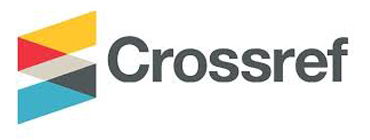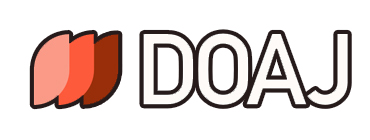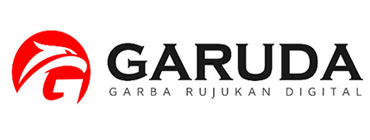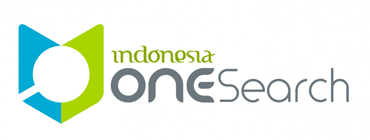ANALISIS CONTINUOUS IMPROVEMENT PADA BUDAYA MUTU MADRASAH DI KABUPATEN BANYUWANGI
Abstract
Management of learning values, as is known as TQM, is a procedure for continuously strengthening performance at every level of operation or process in every functional zone in a particular organization with a broad background, namely the use of human resources and a lot of existing capital. Meanwhile, "Ross and William Mantja" define TQM as the unification of functions and processes in an organizational framework in order to obtain optimal value in terms of quality of goods and income from sustainable products and services. This received a breath of fresh air with the existence of Law No. 20 of 2003, concerning the national education system. Government regulations and other laws recognize that madrasas are public schools with Islamic characteristics.
Referring to the explanation above, seeing the very importance of quality management in educational institutions, and the very importance of making continuous improvements (Continuous Improvement) in Quality Culture, the researcher wants to carry out research with the title "Analysis of Continuous Improvement in Madrasah Quality Culture in Banyuwangi Regency." This research is in the form of a qualitative descriptive study seen from an educational perspective using interview, observation and documentation data collection instruments. It is called qualitative because the nature of the data collected is analyzed qualitatively, not quantitatively using certain measuring instruments.
Continuous Improvement or continuous system improvement is one of the ten main elements in TQM. Every product and/or service is produced by utilizing certain processes in a system.
Full Text:
PDFReferences
Ahmad, D. S., & Mukti, U. W. (2022). ALACRITY : Journal Of Education. ALACRITY : Journal Of Education, 2(3), 72–82.
Asrohah, H. (2014). Manajemen mutu pendidikan. UINSA PRESS.
Azizi, M. H., Bakri, S., & Choiriyah, S. (2023). Implementation of Total Quality Management in the Ministry of Religion-Based Education. Nidhomul Haq : Jurnal Manajemen Pendidikan Islam, 8(1), 125–136. https://doi.org/10.31538/ndh.v8i1.3067
Creswell, J. W., & Creswell, J. D. (2018). Mixed Methods Procedures. In Research Defign: Qualitative, Quantitative, and Mixed M ethods Approaches.
Dian, D., Faizal, I., & Hasanah, N. D. (2022). Leadership and Capacity Building; The Construction of Madrasah Quality Improvement. AL-TANZIM: Jurnal Manajemen Pendidikan Islam, 6(1), 79–90. https://doi.org/10.33650/al-tanzim.v6i1.3179
Diana, R., Kristiawan, M., & Wardiah, D. (2021). Pengaruh Kepemimpinan dan Kinerja Guru Terhadap Mutu Pembelajaran. Journal Educatio, 7(3), 769–777. https://doi.org/10.31949/educatio.v7i3.1221
Hadi, S. (2020). Model Pengembangan Mutu Di Lembaga Pendidikan. PENSA : Jurnal Pendidikan Dan Ilmu Sosial, 2(3), 321–347. https://ejournal.stitpn.ac.id/index.php/pensa
Hasan, B., & Zamroni. (2017). Manajemen Mutu Pendidikan Ikhtiar dalam Meningkatkan Mutu Pendidikan Madrasah melalui Pendekatan Balanced Scorecard. In Akademia Pustaka (Vol. 8, Issue 2).
Indana, N., Pendidikan, P., Islam, A., Al-Urwatul, S., & Jombang, W. (2017). Implementasi Total Quality Management (TQM) Dalam Meningkatkan Mutu Pendidikan (Studi Kasus di MTs Salafiyah Syafi’iyah Tebuireng). 1(1), 62–86.
Jannana, N. S. (2021). Strategi Kepemimpinan: Quality Continuous Improvement SMP Islam Prestasi Al Mubtadi-Ien Bantul Yogyakarta. Nusantara: Jurnal Pendidikan Indonesia, 1(2), 367–384. https://doi.org/10.14421/njpi.2021.v1i2-7
Moleong, L. J. (2019). Metodologi penelitian kualitatif. PT Remaja Rosdakarya Bandung.
Muslihatuzzahro, F. (2023). MANAJEMEN KUALITAS TERPADU ( TOTAL QUALITY MANAGEMENT ) DALAM KONTEKS PENDIDIKAN diberikan . Untuk menjamin pengelolaan pelayanan yang mampu menghasilkan output yang. 50–56.
Mutokhar, P. M. (2014). Manajemen Mutu Sekolah, Prim Masrokan Mutohar.pdf (p. 308).
Nazarudin. (2020). Manajemen Startegik. In NoerFikri Offset. http://repository.radenfatah.ac.id/7078/1/Buku manajemen strategik-digabungkan.pdf
Prasetyo, I., Ali, H., & Rekarti, E. (2023). Peran Gaya Kepemimpinan dan Budaya Organisasi dalam Meningkatkan Kinerja Karyawan melalui Kepuasan Kerja. JIMT: Jurnal Ilmu Manajemen Terapan, 4(5), 657–664. https://doi.org/DOI: https://doi.org/10.31933/jimt.v4i5
Ramlah, & Rohman, A. R. (2023). Total Quality Manajemen untuk Meningkatkan Kualitas Output melalui Sistem Kontrol Mutu Madrasah. Nusantara Journal of Islamic Studies, 4(1), 69–80. https://doi.org/10.54471/njis.2023.4.1.69-80
Rusdi, R. (2018). Continues Improvement Sebagai Upaya Dalam Meningkatkan Mutu Pendidikan Pedesaan. Al-Tanzim : Jurnal Manajemen Pendidikan Islam, 2(2), 150–160. https://doi.org/10.33650/al-tanzim.v2i2.396
Saihu, S. (2020). the Urgency of Total Quality Management in Academic Supervision To Improve the Competency of Teachers. Edukasi Islami: Jurnal Pendidikan Islam, 9(02), 297. https://doi.org/10.30868/ei.v9i02.905
Sallis, E. (2007). TOTAL QUALTY MANAGEMEN IN EDUCATION ( MNAJEMEN MUTU PENDIDIKAN) ( yanto Dwi, Ita (ed.); 7th ed.). IRCiSoD.
Sugiono, S. (2016). Metode penelitian kuantitatif, kualitatif, dan r & d. Bandung: Alfabeta, 288. https://doi.org/https://opac.perpusnas.go.id/DetailOpac.aspx?id=911046
Sutarto. (2015). Manajemen Mutu Terpadu (MMT-TQM). In UNY Press (Vol. 84). http://ir.obihiro.ac.jp/dspace/handle/10322/3933
Suyitno, S. (2021). Strategi Hubungan Masyarakat (Public Relation) dalam Peningkatan Pemasaran Lembaga Pendidikan. Jurnal Basicedu, 5(5), 4138–4145. https://doi.org/https://doi.org/10.31004/basicedu.v5i5.1480 Public
Syamsi, B., Fauzan, U., Malihah, N., Islam, U., Sultan, N., Muhammad, A., Samarinda, I., Islam, U., & Salatiga, N. (2023). Implementasi Peningkatan Mutu Pendidikan dengan Pendekatan. 4, 888–902. https://doi.org/https://doi.org/10.31538/munaddhomah.v4i4.593
Umar, Y. (2016). Manajemen Pendidikan Madrasah bermutu (pertama). PT. Rafika Aditama.
DOI: http://dx.doi.org/10.30829/tar.v31i1.3590
Refbacks
- There are currently no refbacks.

Jurnal Tarbiyah by UIN Sumatera Utara Medan is licensed under a Creative Commons Attribution-NonCommercial-ShareAlike 4.0 International License.
Based on a work at http://jurnaltarbiyah.uinsu.ac.id/index.php/tarbiyah.
Permissions beyond the scope of this license may be available at http://jurnaltarbiyah.uinsu.ac.id/index.php/tarbiyah/about/submissions#copyrightNotice.
















